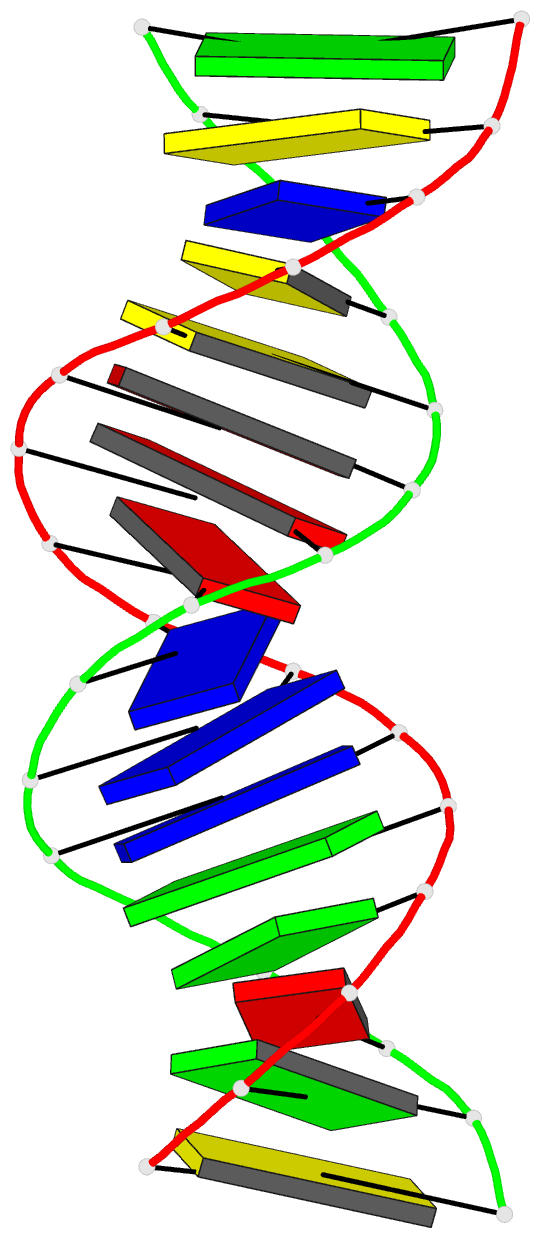Summary information and primary citation
- PDB-id
-
1ssv;
SNAP-derived features in text and
JSON formats
- Class
- DNA
- Method
- NMR
- Summary
- Compensating bends in a 16 base-pair DNA oligomer
containing a t3a3 segment
- Reference
-
McAteer K, Aceves-Gaona A, Michalczyk R, Buchko GW, Isern
NG, Silks LA, Miller JH, Kennedy MA (2004): "Compensating
bends in a 16-base-pair DNA oligomer containing a
T(3)A(3) segment: A NMR study of global DNA
curvature." Biopolymers,
75, 497-511. doi: 10.1002/bip.20168.
- Abstract
- In-phase ligated DNA containing T(n)A(n) segments fail
to exhibit the retarded polyacrylamide gel electrophoresis
(PAGE) migration observed for in-phase ligated A(n)T(n)
segments, a behavior thought to be correlated with
macroscopic DNA curvature. The lack of macroscopic
curvature in ligated T(n)A(n) segments is thought to be due
to cancellation of bending in regions flanking the TpA
steps. To address this issue, solution-state NMR, including
residual dipolar coupling (RDC) restraints, was used to
determine a high-resolution structure of
[d(CGAGGTTTAAACCTCG)2], a DNA oligomer containing a T3A3
tract. The overall magnitude and direction of bending,
including the regions flanking the central TpA step, was
measured using a radius of curvature, Rc, analysis. The Rc
for the overall molecule indicated a small magnitude of
global bending (Rc = 138 +/- 23 nm) towards the major
groove, whereas the Rc for the two halves (72 +/- 33 nm and
69 +/- 14 nm) indicated greater localized bending into the
minor groove. The direction of bending in the regions
flanking the TpA step is in partial opposition (109
degrees), contributing to cancellation of bending. The
cancellation of bending did not correlate with a pattern of
roll values at the TpA step, or at the 5' and 3' junctions,
of the T3A3 segment, suggesting a simple junction/roll
model is insufficient to predict cancellation of DNA
bending in all T(n)A(n) junction sequence contexts.
Importantly, Rc analysis of structures refined without RDC
restraints lacked the precision and accuracy needed to
reliably measure bending.





